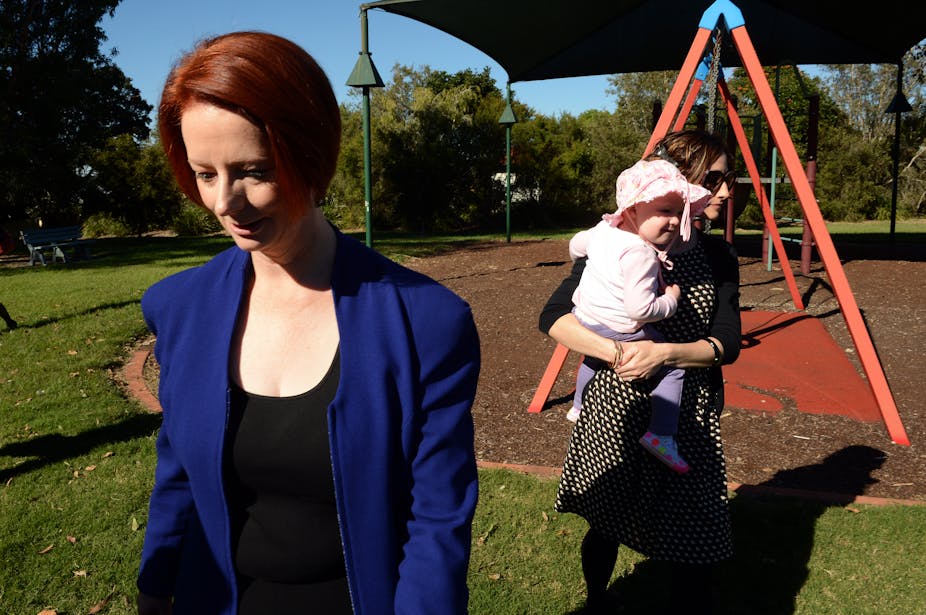“Class warfare” is an emotive term that would seem to belong to a bygone age when there also existed, as in the minds of many people, something called the “class struggle”.
It would seem strange that in age when blue-collar jobs seem to be always in decline that anyone should be referring to “class warfare”. The classes of an earlier age are no more. Australia is a different country to what it was in the 1930s and 1940s.
The country may have moved on, but our politics and political culture has not. Union numbers may be declining but we still have a political party tied to the unions and which has a tradition that leads back to the “class warfare” of an earlier age.
It may now be the case that unionism has particular strengths in such areas as public education, but there is a romanticism about the good old days, of referring to one’s “comrades” and dreaming of the classless society to come.
The political culture may not have moved greatly with the times but the culture of the wider society has changed considerably. Most people are not employed in blue collar, manual occupations.
They work in retail, IT, finance or some other sort of service industry. They want to enjoy the benefits of a society, which, for all its faults, offers them a way of life that few in human history have enjoyed.
“Class warfare” is rhetorical flourish that has more to do with an ingrained view of Australian identity than with the reality of Australian life in the 21st century. I suspect that it was used by Tony Abbott to indicate that that the government was walking back towards the 19th century rather than “moving forward” in the 21st. It was shorthand for the fact that the Labor Party is reverting to its traditional values at a time when those values have little meaning.
Manning Clark used to divide people into “straighteners”, who appeal to our conservative side, and the more progressive “enlargers”. His assumption was that it would always be the Labor side of politics that are the enlargers. But I think that there is a good argument that, in reality, there was a strong element of “straightening” on that side of politics. One has only to consider the way in which the machine tried to control the politicians and make them do its will.
What was particularly refreshing about Bob Hawke was that he was an enlarger who wanted to push beyond the old style of Labor politics. I think the same can be said of Kevin Rudd. It was through leaders such as Hawke and Rudd that Labor attempted to move beyond old-style “class warfare”.
They recognised that Australians no longer wished to be straighteners and wowsers, that they wished to do more and more things for themselves, and that Labor would need to change accordingly. The culture had changed and the political culture needed to change with it.
All this leads to the current Labor leadership, the budget and accusations of class warfare.
Australians in the 21st century, by and large, want to be enlargers. They have moved beyond the old, narrow ways of the straighteners, of the world where one cut down the “tall poppy”, and tried to make everyone conform to a particular way of doing things. An awful lot of Australians do not hate the rich but would like to be rich themselves.
Unfortunately, the language of Gillard and Swan is the language of the straighteners: of resentment against those who have worked hard and made a few quid. It says: “It’s great that you’ve worked so hard and made some money, but where is our share?”
It’s just another version of the little red hen. We didn’t do anything to grow the wheat or mill the grain, but we still should eat the bread.
Now this may have been an attractive view 70 years ago when there was a fair amount of resentment in Australian society and the wowsers ruled the roost. But in the Australia of the 21st century, which is ruled less by resentment and more by a desire to use one’s capacities to do things for one’s self, it simply looks mean and nasty. It looks like old-fashioned “class warfare”.
My sense is that Australians do not wish to go back to that sort of world and those sorts of values. It may make sense in some traditional Labor areas. But in the rest of Australia the world has moved on. Labor has also, in the past, tried to move on; it’s pity that Gillard and Swan seem now failing in their attempts at moving forward.

